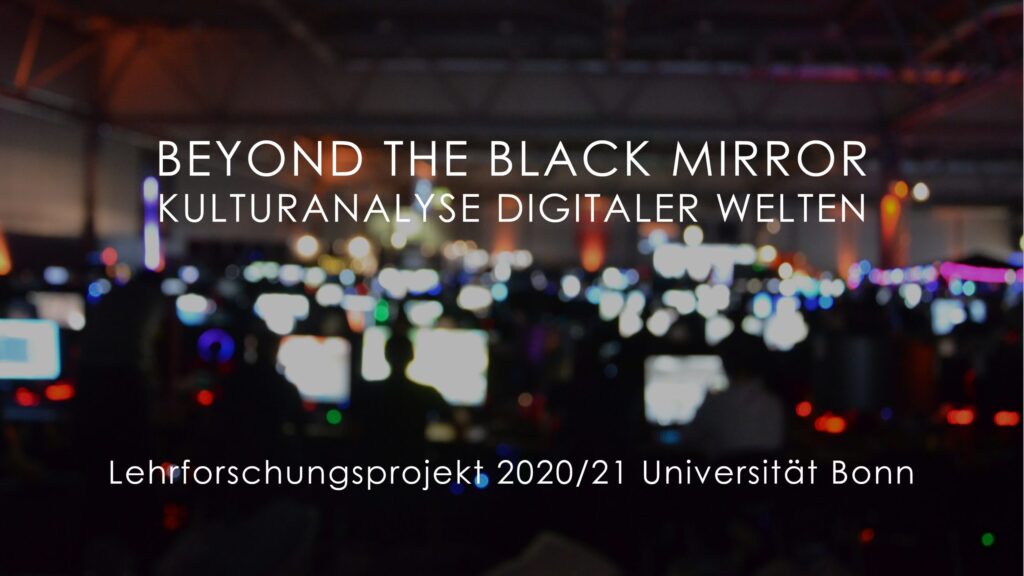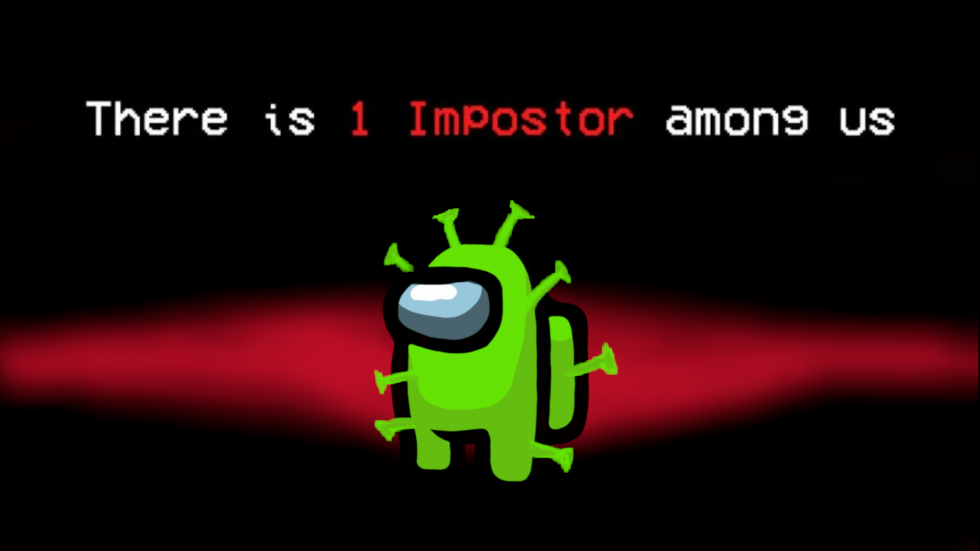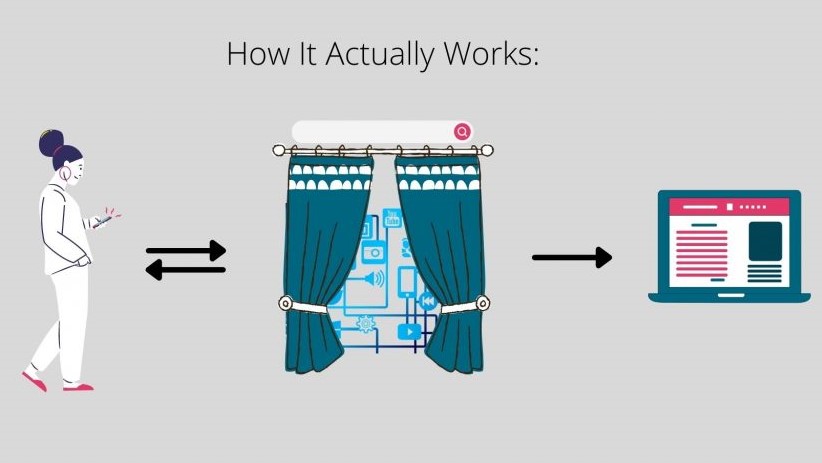Student Research Project 2020/21
Lead: Ruth Dorothea Eggel
BLOG

Virtual spaces are on everyone’s lips. Computer games entice us with new digital worlds. Social media open up so-called online spaces for us. Technology dystopias promise a posthumanism in which human practice blurs with that of machines. But is “space” only a metaphor for digital media? Is there a space behind the screen, the Black Mirror? And how can these cyber-spaces be explored in cultural anthropology?
A group of students in the Master’s programme Transcultural Studies/Cultural Anthropology devoted themselves to these questions from November 2020 to July 2021. In the course research project “Beyond the Black Mirror. Cultural Analysis of Digital Worlds”, the students researched different digital everyday practices and present excerpts of this research here in blog posts.
The project was shaped by digitalities in several respects. The research projects were dedicated to online practices in locally situated contexts and looked at cultural constructions of and through digital technologies. The research followed the connections between actors, servers and programs and asked: How much culture is embedded in algorithms? How do interfaces afford particular everyday practices? How do power relations manifest themselves in digital technologies? And what potential do online spaces offer for appropriation by actors?



At the same time, this project took place in a year determined by Covid19 measures, which also shifted our research, learning and discussion practices into digital spaces (Marion Näser-Lather already discussed the impact of shifting teaching into online spaces on this blog). For a year, we worked together intensively. We met with and through Zoom, Discord, Cryptpads and various digital platforms of the university. We know each other through videos, chats and reading each other’s texts. Until recently, however, we have never met in persona, never in university buildings and never in physical co-presence without digital intermediaries.
Ethnographic research was also affected by the measures. The claim of our discipline to always consider digital practices in their interweaving with situational offline contexts could not be implemented in the same way as usual. Contact with research partners in this teaching research project was largely limited to online communication. The methodological approach had to be adapted according to the constantly changing requirements of the Covid19 measures and focused even more than usual on digital exchange.
These particular circumstances are also reflected in many of the students’ research projects and questions. The Corona pandemic and its effects transformed many digital practices and led to shifts in meaning. In the process, the research followed a wealth of different traces of digitalisation in our everyday lives. From digital games to digital farming, different areas of life were considered in which our practices are interwoven with digitalities.
